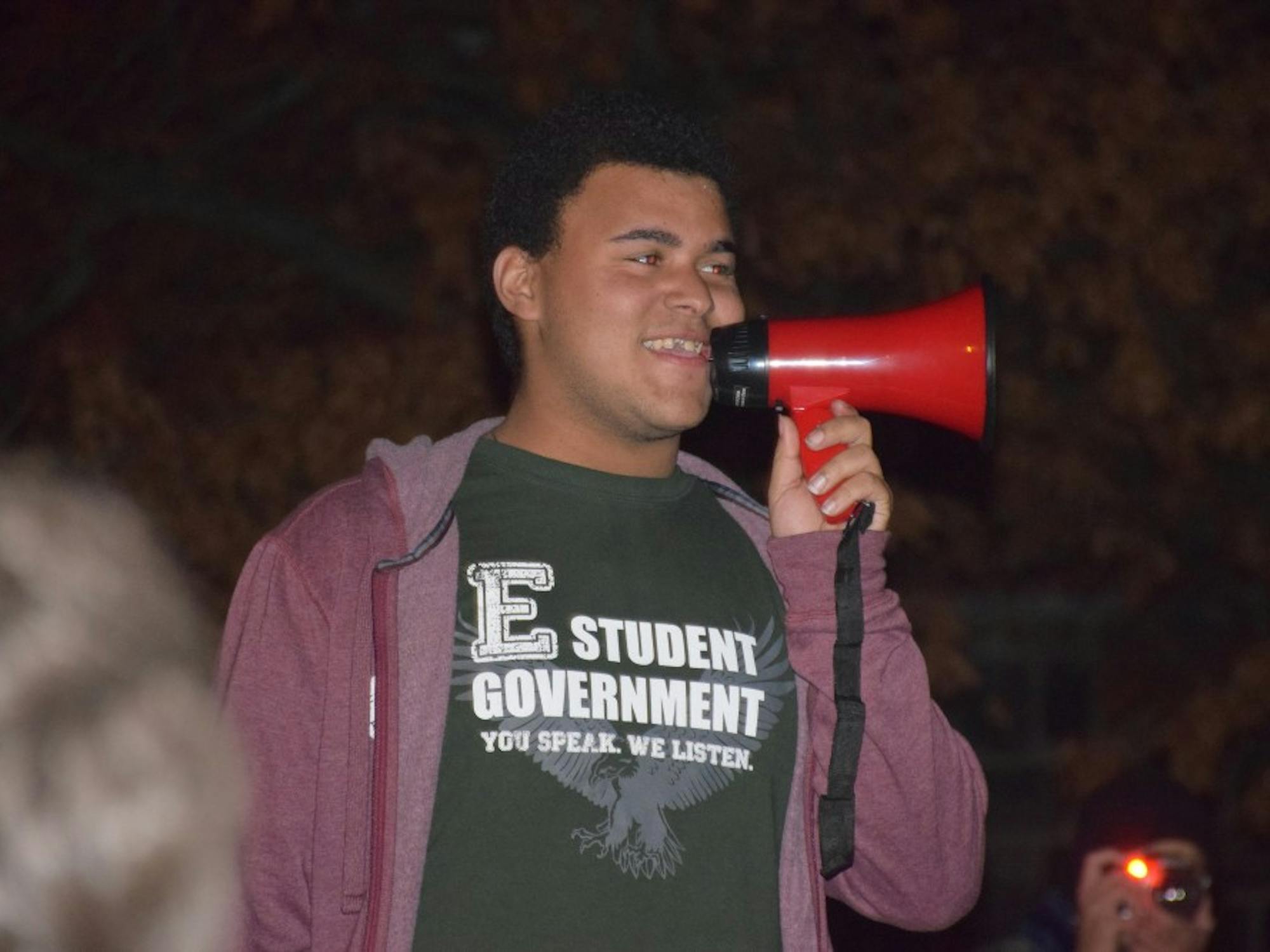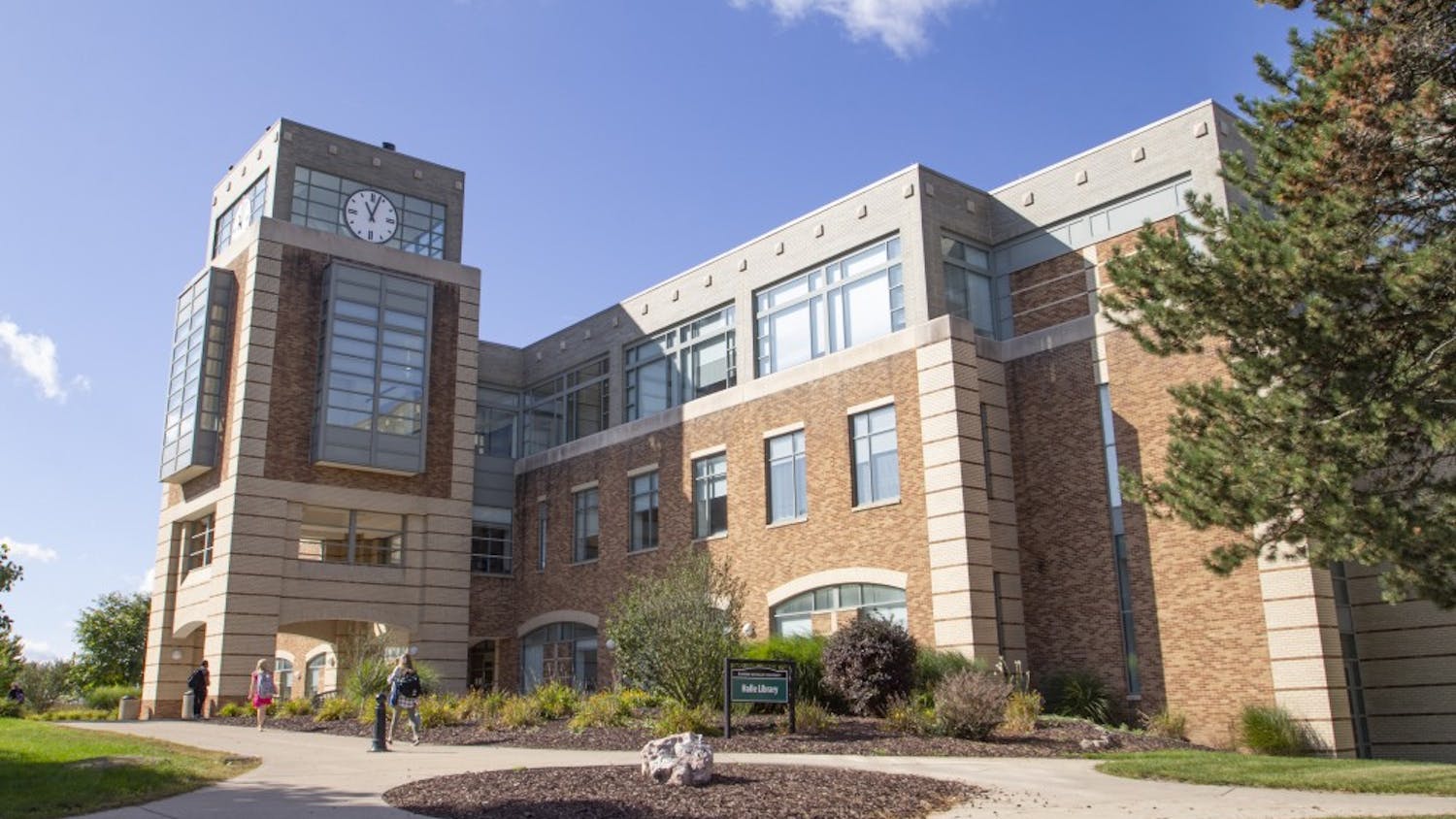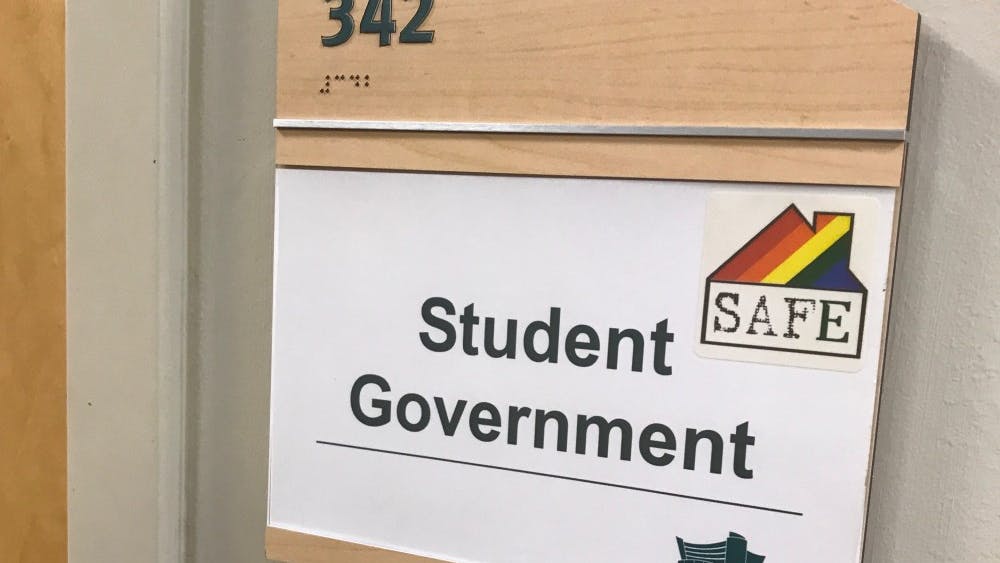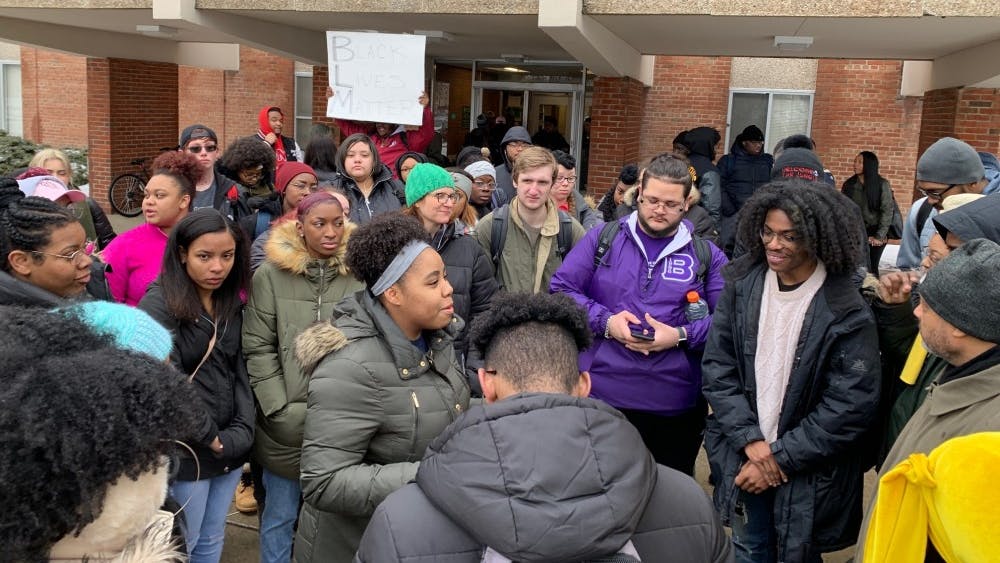Fall 2016 wasn’t fun for anyone. If the 2016 election wasn’t enough to drive student, faculty, staff and administration up the wall, September 20th was. In the early morning hours of that day, an unknown individual (later identified as disgruntled former student Eddie Curlin) sprayed “KKK Leave N*****s” in red, white and blue paint on King Hall. The campus reaction was visceral; Students of color noticed an immediate danger and our university President Dr. James Smith, being only a couple of months into the job, was confronted with a major crisis. Our university was not ready for the emotional reactions that acts of racism fueled by centuries of terror could invoke.
In the middle of this was our student leadership, especially our black student leadership. Our Student Body President at the time, Tanasia Morton, had experience working with the NAACP and was herself a leader with tremendous knowledge. From my perspective, she reacted in the only way she could, with caution and with the method she knew. The day was particularly odd, I remember our Student Body Vice-President Joshua Starr asking each student he came across that afternoon how they were feeling and how he could help. This was probably one of the more helpful things any of our student leaders could have done at that moment.
As students marched onto Washtenaw shutting down all lanes of traffic, Tanasia was on one end (with protesters) and Josh was on the other (at the Student Center) but both were trying to lead a distraught student population. I was with Josh and several of the Student Government executive staff as they attended a forum set up by the University to allow students to voice their feelings. This was the gut reaction of the University and it fell flat on its face. In the coming weeks, I would learn first hand how the University operated and how receptive to criticism they are.
The next day as I sat speaking with the President’s Chief of Staff, he was writing down almost every word I said from how I personally was feeling, to the feelings of students with whom I had spoken. One pointed moment I remember well is saying “this racist vandalism” followed by a couple of explicit words, a few moments later the President’s Chief of Staff asked, “Do you think it is okay if we call it that?” The question was phrased as an honest inquiry, I could tell he wanted to do what we (students) thought was best. He immediately picked up the phone and called downstairs, noting “that is what we are calling this.”
This would become a common theme and not only from Dr. Smith’s Chief of Staff but from him as well. I can recount numerous times when Dr. Smith asked what more we, as an institution, could be doing and every time a step was mentioned he responded with “I’ll do what I can” or something to that effect. Between September 20th and the third week of January 2017, several of us, especially Tanasia and Josh, spent hours a week in meetings with them. They looped us in on everything including the investigation, to the extent they could.
During meetings with the Black Student Union and EMU NAACP, I felt flustered and unable to provide much more than my own assurances that the investigation was proceeding with speed; in reality, I had seen screen captures from security cameras of Eddie Curlin entering and exiting the building. We knew EMU’s Police were hot on the trail and we also knew that the administration was trying to provide closure. To this day, that remains one of the most frustrating points of my time at EMU and a reminder that some within our communities have differing perspectives on issues.
I wish people would have seen the amount of concern that EMU Police Chief Bob Heighes expressed in the following weeks. The steps he and the command staff at the Department of Public Safety took were outstanding. This included the restraint they had during the October football protest which earned scorn from their colleagues from other jurisdictions who wanted students arrested. That evening as black students and our allies climbed the barriers to the football field, I not only watched but tried my best to bridge the communication between those students rightfully protesting and the administration. I knew something was bound to happen at that game, I went knowing I wouldn’t be able to be an activist for long.
Protest began moving toward the Convocation Center at half-time. I began communicating to other members of student leadership advising them to get up there as soon as possible. I remember Tanasia pushing through security staff to gain access to the stadium and nearly shoving one security staff person aside as she moved to obtain a better vantage of the situation. I learned a lot from her that day. I eventually asked DPS officers to assist me in jumping the fence to discuss with DPS command staff how they were going to proceed and to note that the Michigan State Police were being too aggressive.
I wish we would’ve done things differently; we all sometimes wish we could have a do-over. There are some things that I will never take back though. In 2016, I assisted both the University’s administration and students in actions. I encouraged students right to express themselves and I would regularly notify administration of when those events were happening. When I took a large group to march through the streets of Ypsilanti, I coordinated with EMU Police to ensure we were safe. I will not apologize or seek to reconcile those moments, I did what I thought was best as did the other black student leaders who did the same thing. We were all acting on the same page from the same playbook.
On the morning of Nov. 2, 2016, the Department of Public Safety and Administration notified Student Government leaders of their intent to remove students from the Student Center or seek charges for those who didn’t leave. They asked Tanasia and I if we had any issues with that. I responded “No.” I should have done everything in my power to stop them. This is one of those decisions which I would redo if I could. It may not have changed the outcome but it was my role as a representative of the students to express in their best interest and I became complacent resulting in failure. For that mistake, I am overwhelmingly sorry to the students charged, their friends and family.
A couple days later, I recognized my failure and sought to correct it. I authored a resolution demanding the University reverse its course and spent many meetings attempting to convince the University of that. The head of Student Conduct at the time, Michael Smith, was hardened, remarking to me in later days “I’d charge them again.” This wasn’t the tone for the majority of administrators though. In-fact some members of administration, especially Dr. Chiara Hensley, were instrumental in the final outcome to effectively “pardoning” everyone who participated in the protest. President James Smith and Dr. Rhonda Longworth ultimately were the individuals to act on that pardon. While I might disagree with them sometimes, they care deeply about students, their successes and their failures.
The events of 2016, which I still am unsure how to title, changed Eastern. Throughout the summer of 2017 a working group brought together a new Code of Conduct designed around restorative justice. The confrontation-style judicial panels were replaced with circular community panels and the staff in the renamed Office of Wellness and Community Responsibility was changed. Michael Smith, who had voiced frustration and objection to many student-centered restorative justice proposals, was replaced with Sean Woolf. The office space itself was redesigned and most importantly students were given the chance to reconcile with the community.
In my final two-and-a-half years at EMU, I was given the opportunity to serve on at least 12 panels, some of which had significance for the university as a whole and some that were personally significant. We started each with a confirmation of our values at EMU of Honesty, Integrity, Responsibility, Inclusivity and Respect. The process reflects that and the lack of punitive action over the last two years is a reflection of what the students who sat-in, stormed the field and spoke-out were standing for. I encourage everyone to get involved in that process because it is how we encourage fairness at EMU.










